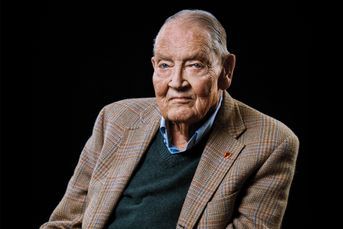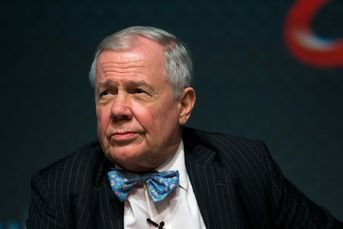Dimensional Fund Advisors’ David Booth on competition, the DOL fiduciary rule and his company’s future
The executive chairman discusses how the firm plans to maintain its bond with its legion of astonishingly loyal investment advisers.
David Booth is co-founder of mutual fund powerhouse Dimensional Fund Advisors and now executive chairman of the company. He stepped back from his role as co-CEO (along with Eduardo Repetto) in February, and David Butler has stepped up as co-CEO.
During Mr. Booth’s tenure, he has helped mold DFA’s intellectual, outcome-oriented asset management arm and to form a bond between the company and its legion of astonishingly loyal investment advisers. InvestmentNews senior columnist John Waggoner spoke with Mr. Booth about his new role with the company and the challenges it faces.
InvestmentNews: You’ve now got a chance to sit back and think of some of the big-picture issues for the company’s future. How’s that going?
Mr. Booth: Well, not yet. Someday. I don’t get so overbooked now — there are some meetings I don’t attend any more. I’m trying to get out of the various meetings throughout the day that don’t involve board-level decisions. I’m glad not to be in the new business card meeting.
When you get to be my age, it doesn’t seem like you’re any older, but people start to ask questions about succession plans that they hadn’t asked before. Some look at you and they see an old person that you don’t see. Fortunately, we have good people coming in, many of whom have taken major leadership roles. So this is a chance to take things a little easier, which would be all right. In the meantime, David Butler has done a terrific job.
InvestmentNews: You’re not exactly alone in the multi-factor index fund business these days. How will DFA deal with all the new competition?
Mr. Booth: We have more competitors, but the pie is bigger — it all cancels out. Look, the way I approach it is, we have been a reasonably successful firm, and it’s unrealistic to think we wouldn’t have competitors. What would you rather have: A 100% share of a market that’s tiny, or one where you get to be at center stage of a big market? We’re not going to win all the arguments. There are others out there with ideas, some of them well-thought-out. That’s a challenge. But if it were easy, everyone would want to do it.
I’m not being cavalier. We have a very loyal group of clients, business is growing. But we’re never going to get 100% of new business. In some ways, the competition has really been terrific and forces us to be better. We just have to make sure we communicate effectively what we do. If we do that, we’ll be all right.
InvestmentNews: Given the added competition, is it harder getting good new employees?
Mr. Booth: It’s easier now. What we do doesn’t sound so strange any more. When there’s only one person talking in a particular way, you have to lay a lot more groundwork. People want to know how you differ from others doing factor investing. It’s easier than when you have people say, ‘Why would anyone do this?’
A bigger issue than explaining factor investing is that people are not taking finance classes as much as they used to. Enrollment across the country is down since the financial crisis. A lot of people attracted the finance industry were being painted as being a bunch of bad people. It eventually has an effect. That’s a bigger problem than explaining factor investing.
InvestmentNews: What do you think of the Department of Labor’s proposed fiduciary rule?
Mr. Booth: I personally like the idea. I never understood the difference between being suitable and being a fiduciary. That’s at the heart of why people have a negative view of financial services. They try to wiggle out and say an investment was suitable, even though it ends up being awful. Whatever you do to establish trust is good. But the fiduciary rule was poorly written. The way the law was proposed makes people do mindless extra work.
InvestmentNews: Is it harder now to launch a new fund company than it was when you started?
Mr. Booth: It’s much harder. We started in 1981. Our first office was my apartment, and the trading room was a converted spare bedroom. Doors on file cabinets were our desks. We had very little capital and didn’t have a compliance department. I don’t know how you start now without a compliance department. It either wouldn’t have happened or we would have had to sell a big chunk to outsiders. I tell peple I’m supposed to like regulation because it keeps the riffraff out, but think it’s sad that it’s so difficult. But here’s a nice story about Jack Bogle. I met with him and asked him if he could do the operations work of running a fund and charge us a fee, and he said, “Ok.” The first thing I needed was a good law firm. He told me to call Stradley Ronon [Stevens & Young] in Philadelphia, and that’s how we got started.
Learn more about reprints and licensing for this article.








